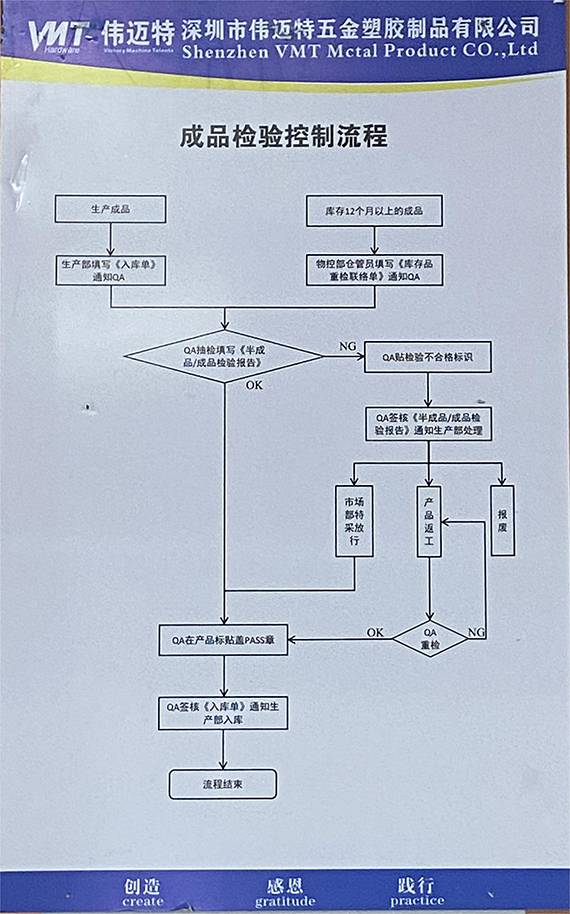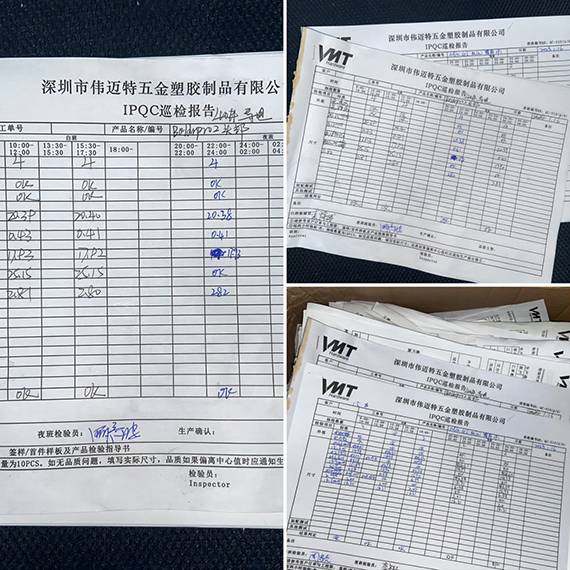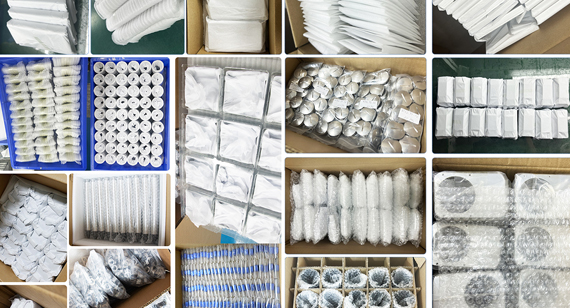15 years one-stop China custom CNC machining parts factory

Hey there I’m VMT Sam!
With 25 years of CNC machining experience we are committed to helping clients overcome 10000 complex part-processing challenges all to contribute to a better life through intelligent manufacturing. Contact us now
 114 |
Published by VMT at Jan 24 2024
114 |
Published by VMT at Jan 24 2024
Introduction:
Shenzhen, as the epicenter of China's high-tech manufacturing, is home to numerous professional CNC machining factories. These facilities uphold stringent standards and boast extensive practical experience in quality control. This article delves into the quality control standards of professional CNC machining factories in Shenzhen, aiming to provide valuable insights for related industries.
Professional CNC machining factories in Shenzhen commonly establish a comprehensive quality control system. Rooted in the ISO 9001 Quality Management System, this system undergoes customization based on the unique characteristics of each enterprise and market demands. It covers quality management across the entire process, from raw material procurement to production process control and final product inspection.

II. Raw Material Quality Control:
In the quality control process, ensuring the quality of raw materials is a crucial first step. Professional CNC machining factories in Shenzhen rigorously select and assess raw material suppliers to guarantee the stability and reliability of raw material quality. Incoming raw materials undergo quality inspections, including checks on appearance, dimensions, and material composition, ensuring compliance with process requirements.
III. Production Process Quality Control:
Quality control during the production process is the core aspect of overall quality management. Professional CNC machining factories in Shenzhen ensure the stability of the production process through the following measures:
Crafting Process Flow:
Developing scientifically sound process flows based on product characteristics and customer requirements. Clearly outlining processing requirements, operational specifications, and inspection standards for each processing step.
Equipment and Tool Management:
Utilizing advanced CNC machining equipment and precision tools to ensure equipment accuracy and stability. Regular maintenance of equipment is conducted to ensure equipment remains in optimal condition.
Control of Machining Parameters:
Strictly controlling machining parameters such as cutting speed, feed rate, and cutting depth during the production process. This ensures that parameter settings align with process requirements, thereby guaranteeing both efficiency and quality in machining.
Process Inspection and Monitoring:
Establishing inspection points at key stages to sample or comprehensively inspect components during the machining process. Real-time monitoring of dimensions using online inspection equipment ensures machining accuracy.
Employee Training and Quality Awareness:
Conducting regular training sessions for employees on quality awareness and skills to enhance their understanding and execution of quality control. Establishing a quality assessment system that links quality indicators with employee performance to stimulate proactive engagement in quality control.
IV. Finished Product Inspection and Packaging:
The final checkpoint in quality control is the inspection of finished products. Professional CNC machining factories in Shenzhen ensure product quality through the following measures:
Establishment of Inspection Standards:
Formulating detailed inspection standards for finished products based on customer requirements and industry standards. These standards cover requirements related to appearance, dimensions, performance, and more.
Execution of Inspection Procedures:
Rigorously inspecting finished products according to the established standards to ensure that each component meets the specified requirements. Identifying, isolating, and handling non-conforming products to prevent their entry into subsequent processes or shipment.
Quality Recordkeeping and Traceability:
Establishing a quality record management system to record and preserve quality data for each component. Achieving traceability of product quality through quality records, facilitating problem tracing and improvement.

Packaging and Transportation Control:
Ensuring proper packaging of finished products to prevent damage during transportation. Conducting a final inspection before packaging to ensure product quality is maintained. Additionally, monitoring and managing the transportation process to ensure safe and timely delivery to customers.

V. Continuous Improvement and Innovation:
Professional CNC machining factories in Shenzhen not only focus on current quality management but actively seek opportunities for continuous improvement and innovation. By collecting customer feedback, analyzing quality data, participating in industry exchanges, and encouraging employees to propose improvement suggestions, these factories continuously explore spaces for enhancing quality. In terms of technological innovation, they keep an eye on industry trends and the development of new technologies, actively introducing advanced production technologies and equipment to improve production efficiency and product quality. Moreover, they collaborate with universities and research institutions to conduct technical research and innovation activities, promoting technological advancements and quality improvement within the enterprise.
Conclusion:
In summary, professional CNC machining factories in Shenzhen possess rich practical experience and a well-established management system in quality control. Through stringent control of raw material quality, optimization of production processes, rigorous finished product inspection and packaging, and a commitment to continuous improvement and innovation, they ensure the stable and reliable quality of their products. These successful practices are worth learning from and emulating for related enterprises, contributing collectively to the elevation of quality standards in the CNC machining industry.
Ready To Start Your Next Project?
Get Instant Quote

Request a Free Quote
Send us a message if you have any questions or request a quote. We will get back to you ASAP!